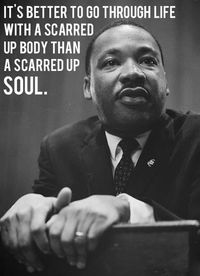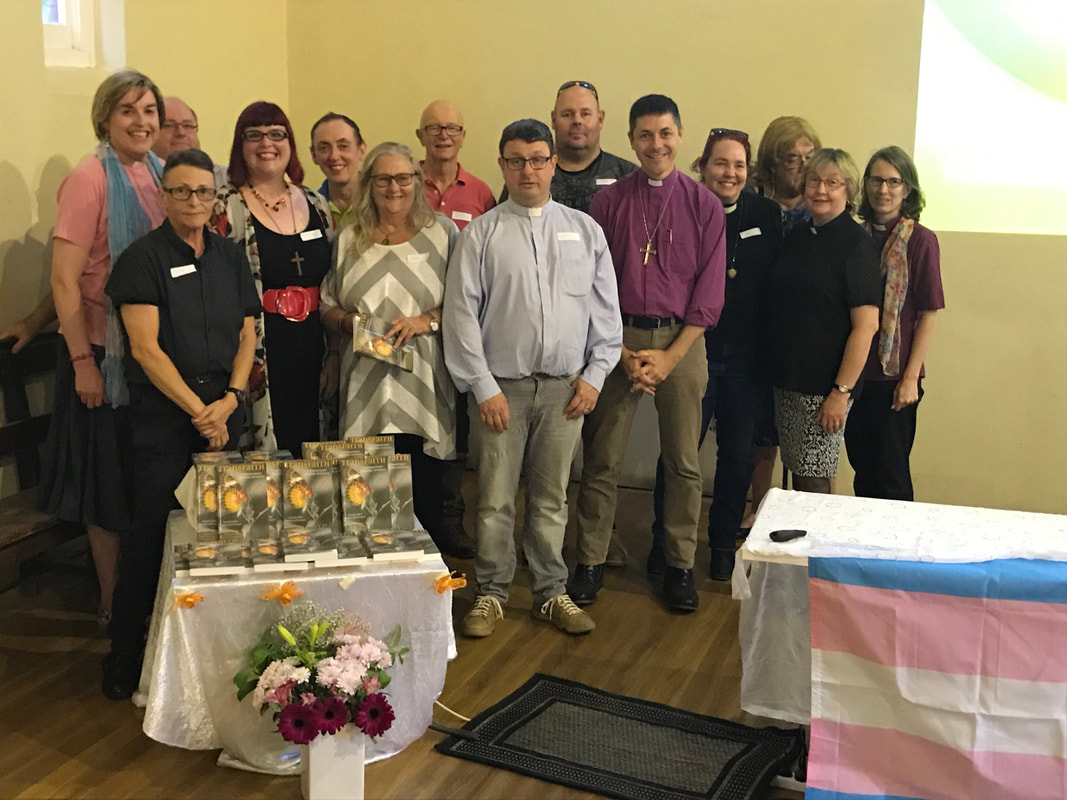 There is much more than property at stake in current Sydney Anglican developments, For ultimately, suppression and distortion of the mind and soul is so much more destructive than that of the body. This is a transgender truth which continues to be violated in so much conservative and fundamentalist Christianity. Much response has thus, rightly, been made to legal, property based, moves by the Anglican Diocese of Sydney to repress religious freedom within its ranks. This includes suppression of what its leadership has termed, but not defined, as 'transgender ideology'. Yet, in its 'Gender Diversity Initial Principles of Engagement' it brings forward its own transgender ideology this week. This, and the guidelines it proposes (outlined on pages 68-73 of its Standing Committee's Annual Report), represent a powerful, but not to some immediately obvious, attack upon gender diverse people, their families and friends. For whilst it is laced with language about compassion, it is a typical master of misdirection, based on outdated understandings and a priori convictions about gender diversity and its relationship to human, not least spiritual, growth. It displays little or no meaningful engagement with the expertise of those engaged in enabling gender diverse people to flourish, never mind the lived experience of transgender people as a whole (even the increasingly visible and articulate gender diverse Anglicans and Christians) themselves. It reflects a form of misapplied compassion; caged in narrow, false and controlling 'biblical' preconceptions; seemingly wholly ignoring the realities and insights of intersex and non-binary people in particular; and essentially treating gender diverse people as sick, broken and disabled from knowledge or agency of their own health and freedom. Such views are not those of the Sydney Anglican diocese alone but widespread in certain types of vocal Christianity and in broader society. Codified as they are in the Sydney diocese's work however, they offer a disturbing model of practice which will not only harm the lives of gender diverse people within the diocese's own reach but, if taken up elsewhere, will have negative effect more widely. As a potential vehicle of spiritual abuse, it thus demands critique, opposition, and transformation into something wholesome. Misdirected Compassion It would of course be deeply unfair to regard Sydney Diocese's Gender Diversity developments as devoid of compassion. Undoubtedly those involved in this work include deeply caring Christians who are genuinely struggling with the issues involved, not least some gender diverse people and their families themselves, as well as 'ordinary' Anglicans 'in the pew'. It is understandable that they should also bring their own theological and biblical understandings to this issue, as relating all things to the love of God among us is a core element in Christian ethics on this and other questions, There are also no fixed guidelines or pathways which can be applied to all gender diverse people in all circumstances - something which of course also gives the lie to the very idea of an alternative 'transgender ideology' which the Sydney diocese appears to want to promote (for, as I know to my own cost, arguments within the transgender community itself can be quite lively even though key basics are commonly agreed). Like sincerity and good will however, merely having feelings of compassion, and even will and energy for it, is not enough. Compassion is incomplete without a willingness to listen properly to others, especially those most closely involved; without a humility about what wisdom our inherited traditions can offer; and without genuine partnership with expertise in the field. Drowning in Ideology Sydney diocese's Gender Diversity guidelines are thus full of a number of expressions of, and invocations to, 'love, support and care'. They are also not empty of some good suggestions, Congregations for instance are encouraged 'to be concerned for the whole person not just their gender issues', 'to respect the person and their family', 'not to stare, exclude or isolate gender nonconforming people', 'not to make jokes about gender nonconforming people' or make them into 'a celebrity or spectacle', and 'to be aware that taking or displaying photos' may cause distress.' Yet such helpful signs of empathy are drowned in an ideological framework which excludes so much other vital understanding and practice. For it is based on an outdated medical model (or 'Disability' framework) of gender diversity as sickness and a distorted theological model (or false 'Integrity' framework) of caged binary gender. Combined together they make for an offensive ideology in which it is wrongly and crassly asserted that: 'In the beginning, God made humanity male and female, and, in his creative purposes, biological (bodily) sex determines gender' and 'the binary distinctions of male and female are to be embraced and upheld in the lives of Christian men and women.' The consequences matter. For well-meaning compassion then becomes not only misdirected and (perhaps unconsciously) mendacious, but, in its effects it is destructive to the minds, souls and lives of vulnerable gender diverse children, adults and their loved ones. Beyond the Disability framework - Gender Diverse people flourish The Disability framework to gender diversity is one from which others too are slowly emerging. There are, for example, still remnants, in law and practice, of the 'gatekeeper' approach to transgender treatment, so much resented by transgender people. Many well-meaning people, like many less well-informed Sydney Anglicans, understandably thus still struggle to move beyond pity and as sense of responsibility for people they regard essentially as only unfortunate and suffering souls. Sadly some medical and psychological practitioners are still not immune to this dis-eased approach. However most mainstream practice and policy in gender diversity care has long since moved on. Gender diverse person-centred care, based on a participative and informed 'Diversity' or 'Affirming' framework, is now the rightly accepted best pathway to growth. It is highly significant therefore that the Sydney Anglican diocese makes no mention of the authoritative Standards of Care of WPATH (the World Professional Association of Transgender Health) or Australian bodies (such as ANZPATH). It also ignores the increasing research of recent decades which shows that gender diverse people flourish so much better when they are viewed as part of the extraordinary diversity of humanity (and, for religious people, of divine creativity itself), rather than as an aberration. Above all, such developments have also been prompted by the growing movement of gender diverse people who have pride in who we are: not as sick victims or suffering subjects of others' compassion but as agents who can shape our own healing and flourishing, and as people with immense life, insights and gifts which our troubled world desperately needs to receive. Counseling family and friends, as the Sydney diocese does, 'if appropriate, to provide information about alternative treatments to those which promote transitioning' is but one example of its unwarranted and potentially damaging resistance to truly life-giving compassion which gender diverse people are finding in other ways. In contrast, there is a striking lack of any mention of measures to affirm and celebrate gender diverse people on any page of the Sydney diocesan guidelines: no thought of liturgical and other provision for key moments of transition and affirmation; no links to or encouragement to listen, talk and work with others in the transgender world (Christian and secular) who are wrestling so deeply with these issues and who know how beautiful and creative gender diverse people are when they affirm themselves and are affirmed by others. . Caged by theological pre-judgements For at the heart of the Sydney Anglican diocese's difficulties in coming to terms with gender diversity is the ecclesiastical trap into which it continues to enclose itself. The bars of its imprisonment are formed by the now perennial obsessions of its leading figures with narrow and depressing conceptions of humanity and God. These pre-judgements are superimposed on a limited range of contested Biblical texts which are then given determinative authority over everything, irrespective of the human and divine wisdom to be found in science, reason, lived human experience, and the much much wider liberating and enlarging themes of the Bible as interpreted by others. As such, it is a theological, as well as medico-disability, transgender ideology which Sydney diocese is promoting and in which it is held in terrible thrall. Space precludes a full theological critique, but it includes: the extraordinary weight placed on isolated texts such as Genesis 1.27, where humanity created as 'male and female' is construed as forming two tightly bound binary boxes instead of being a description of the broad spectrum of diverse gender identity of which 'male' and 'female' are but two poles; the misuse, and ahistorical, use of the ancient concept of 'the Fall' of humanity, which, whilst being blind to the sheer diversity and creativity of evolution, is employed to label some, and not simply gender diverse people, as fundamentally 'broken', sick or 'disordered'; and, above all, the disregard of other major biblical themes and trajectories, including those of liberation, the affirmation of eunuchs and other 'little ones' and people of dfference, the healing acts of Jesus as acts of transformative grace rather than adherence to religious law, and the dynamics of God's Holy Spirit in bringing about a new creation in which (as in Galatians 3.28) old human-made binary distinctions (such as male and female, Jew and Gentile) are transcended. Christian alternatives The sadness is that it does not have to be this way, in Sydney or elsewhere.. Across the world, many Christian bodies are now working with gender diverse people and their allies in seeking genuine understanding and life-giving paths forward which will enable all to flourish fully. For some of us the pace can often appear very slow, even glacial. Yet it is happening and it is a matter of sorrow and frustration that Sydney Anglican diocese has turned its back on this and the insights, experience and appropriate participation gender diverse Christians like myself have to offer. As an Anglican, I rejoice that the Church of my birth (the Church of England), so overwhelmingly fully affirmed transgender people at its General Synod in 2017 (see here), seeking provision of pastoral and liturgical affirmations and building on policy support for gender diverse people in ordained as well as lay ministry. Others in the Anglican Communion, notably the Episcopal Church of the USA, continue to move further forward in dialogue, affirmation, policy and practical support. In my own diocese of the Anglican Church Southern Queensland (Brisbane), it has also been heartwarming to see the many ways in our schools, and many parishes, are now slowly beginning to engage positively, offering such welcome support and affirmation to many gender diverse people. Crucially, such developments have also been enhanced when gender diverse people themselves have been allowed into leadership, as increasing numbers of us come out or enter into ministry, and as more and more personal experience, theological and pastoral resources are produced by and with gender diverse Christians ourselves. This year's publication of Transfaith (co-authored by Anglican priest and trans woman Christina Beardsley) is but one valuable contribution among many (see here for some further resources). Should the Anglican diocese of Sydney step back to listen, dialogue and allow gender diverse Christians to help lead and contribute, its stirrings of compassion might find space beyond the cage, and healing rather than sickness for itself and others. Some of the members of the Anglican Diocese of Brisbane (Anglican Church Southern Queensland),,
with co-author the Revd Dr Chris Dowd, at the Australian launch of Transfaith in Brisbane earlier this year
0 Comments
Leave a Reply. |
AuthorThe Revd Dr Jo Inkpin: Archives
March 2024
Categories
All
|

 RSS Feed
RSS Feed